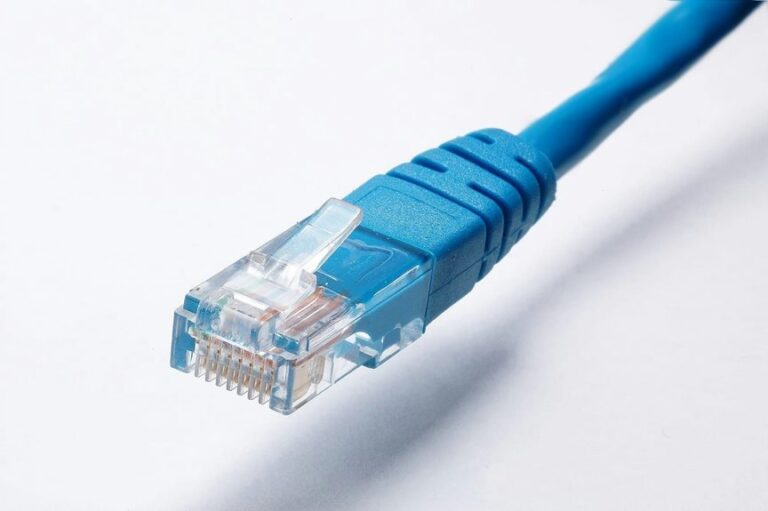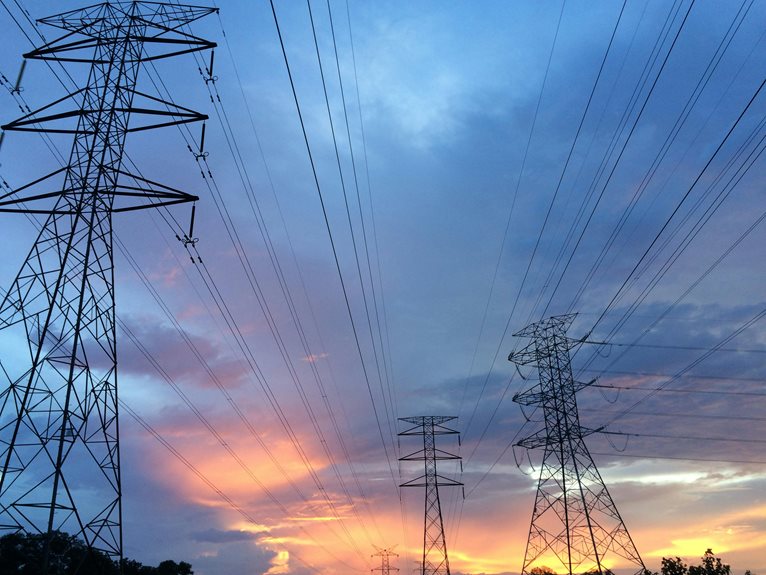Just as a sturdy ship needs a reliable hull to navigate turbulent waters, your home requires a well-functioning electrical panel to guarantee safety and efficiency. If you've noticed flickering lights, frequent breaker trips, or warm outlets, it might be time to contemplate an upgrade. Modern panels not only enhance safety but also improve energy efficiency and can even increase your property value. Understanding the intricacies of this process is essential, especially when it comes to compliance and safety measures. What steps should you take to guarantee your upgrade is both effective and secure?
Signs You Need an Upgrade
Your home's electrical system plays an important role in everyday safety and functionality, so recognizing the signs that indicate you need an upgrade is crucial. One of the first signs is frequent circuit breaker trips. If you notice your breakers tripping often, it could mean your panel can't handle the load of your electrical demands.
Another warning sign is flickering lights. If your lights dim or flicker when you use other appliances, this could indicate an overloaded system. Additionally, if you find that your outlets are warm to the touch, it's a significant red flag; overheating can lead to electrical fires.
You should also be cautious if you see rust or corrosion on your electrical panel, as this can compromise its integrity.
Finally, if you live in an older home with a fuse box instead of a modern circuit breaker panel, it's time to think about an upgrade. Top electricians can help you assess and upgrade your electrical system safely.
Ignoring these signs can lead to serious safety hazards. Always prioritize your safety and consult a licensed electrician to evaluate your electrical system. Taking action now can prevent future complications and guarantee your home remains a safe environment.
Benefits of Upgrading
Upgrading your electrical panel offers significant benefits that can enhance your home's safety and efficiency.
You'll increase safety measures by reducing the risk of electrical fires and overloads, while also improving energy efficiency to lower your utility bills.
Additionally, a modern panel can boost your home's value, making it a smart investment for the future.
Increased Safety Measures
Many homeowners experience enhanced safety after upgrading their electrical panels. Older panels often lack the necessary circuit breakers and safety features to handle modern electrical demands. By replacing outdated systems, you reduce the risk of electrical fires and circuit overloads, which can lead to severe damage or injury.
Here's a quick look at the safety improvements:
| Upgrade Type | Safety Benefit | Example Scenario |
|---|---|---|
| Circuit Breakers | Prevents overloads and fires | Trips when too much current flows |
| Ground Fault Interrupters (GFI) | Protects against shocks | Cuts power when detecting moisture |
| Arc Fault Circuit Interrupters (AFCI) | Reduces fire risk from arcs | Detects and interrupts hazardous arcs |
Investing in a new electrical panel not only guarantees compliance with current safety codes but also enhances your home's overall safety profile. You'll gain peace of mind knowing your electrical system is equipped to handle today's energy demands, protecting both your property and loved ones. Ultimately, making this upgrade is a proactive step toward a safer living environment.
Enhanced Energy Efficiency
An upgraded electrical panel not only enhances safety but also markedly boosts energy efficiency in your home. When you replace an outdated panel, you're likely to experience a more reliable distribution of electricity, reducing energy waste.
Older panels often struggle to handle modern demands, leading to overloaded circuits and inefficient energy use. By upgrading, you'll enable your system to better manage the load from high-efficiency appliances, smart home devices, and renewable energy sources.
This improved load management means your electrical system operates more efficiently, reducing your overall energy consumption and lowering your utility bills. Additionally, newer panels come equipped with advanced technologies, like smart circuit breakers, that provide real-time monitoring of energy usage.
This feature allows you to identify energy hogs in your home and make informed decisions on energy conservation. Moreover, an upgraded panel supports energy-efficient practices, such as implementing dedicated circuits for specific appliances, allowing them to run at peak efficiency.
Improved Home Value
When you invest in an upgraded electrical panel, you'll likely see a significant boost in your home's value. A modern electrical panel not only enhances safety but also improves your home's appeal to potential buyers. Outdated panels can be a red flag, as they may indicate wiring issues or insufficient capacity for modern appliances.
Here's a quick overview of how upgrading impacts value:
| Benefit | Explanation | Impact on Value |
|---|---|---|
| Increased Safety | Reduces fire risks with modern technology | High |
| Enhanced Capacity | Supports more devices and higher loads | Medium-High |
| Energy Efficiency | Lowers energy bills with better performance | Medium |
| Compliance | Meets current codes and standards | High |
| Market Appeal | Attracts tech-savvy buyers | High |
Upgrading your electrical panel also reassures buyers that they won't face costly repairs soon after purchase. It's a wise investment that pays off in the long run, ensuring your home remains competitive in the real estate market. Don't overlook this vital aspect when considering home improvements!
Common Electrical Panel Types
Understanding the different types of electrical panels is essential for any homeowner looking to upgrade their electrical system. The most common types include main breaker panels, subpanels, and fuse boxes.
Main breaker panels are the primary distribution point for your home's electrical system. They've a main switch that can shut off electricity to the entire house, enhancing safety during maintenance or emergencies.
Subpanels, on the other hand, allow you to distribute electricity to specific areas of your home, reducing the load on the main panel and providing greater flexibility for circuit management.
Fuse boxes, although less common today, use fuses instead of circuit breakers. Each fuse protects a specific circuit, but they can be less convenient since blown fuses need replacement rather than simply resetting a breaker.
You might also encounter smart panels, which integrate technology to monitor energy usage and enhance safety.
Whichever type you choose, make sure it meets current safety standards and local codes. Regular maintenance and inspections can help keep your electrical system safe and efficient, so don't hesitate to consult a qualified electrician for guidance.
Choosing the Right Size
Choosing the right size electrical panel is essential for ensuring your home can safely accommodate its electrical needs. An undersized panel can lead to overloaded circuits, which might cause electrical fires or damage to your appliances.
To choose the right size, consider the following factors:
- Current Load Demand: Calculate the total wattage of all appliances and devices you plan to use. This will give you a baseline for your panel size.
- Future Expansion: If you're planning to add more appliances or devices, factor in that additional load to avoid needing another upgrade soon.
- Local Codes and Regulations: Check your local electrical codes, as they often dictate minimum requirements for panel sizes in residential homes.
- Professional Consultation: It's wise to consult a licensed electrician. They can assess your specific needs and recommend the ideal panel size for your home.
Understanding the Costs
While evaluating the costs associated with electrical panel upgrades, it's crucial to take into account various factors that can influence your overall investment. The costs can vary considerably based on the panel's capacity, labor expenses, and any additional enhancements required for safety and compliance.
Here's a breakdown of common cost factors:
| Cost Factor | Estimated Cost |
|---|---|
| Electrical Panel | $500 – $2,500 |
| Labor (per hour) | $50 – $100 |
| Permits & Inspections | $100 – $300 |
| Additional Upgrades | $200 – $1,000+ |
Keep in mind that opting for a higher capacity panel typically means higher costs, but it can also provide better performance and safety. It's also vital to hire a licensed electrician to guarantee compliance with local codes and enhance safety. The initial investment in a reliable upgrade can prevent future issues, making your home safer and more efficient in the long run. Always get multiple quotes and consult with professionals to get the best value for your upgrade.
The Upgrade Process
When you're ready to upgrade your electrical panel, it's vital to follow a systematic approach to guarantee safety and compliance. This process involves several key steps that secure your home's electrical system can handle increased demands.
- Assess Your Needs: Start by evaluating your current electrical usage and future needs. Consider appliances, gadgets, and potential renovations.
- Select the Right Panel: Choose a panel that meets your assessed needs, typically rated between 100 to 200 amps for residential use.
- Hire a Qualified Electrician: It's important to work with a licensed electrician. They'll make sure the installation meets local codes and regulations, safeguarding your home.
- Obtain Necessary Permits: Before starting the upgrade, check with your local authorities for required permits. This step is significant to avoid legal issues down the line.
Additionally, working with expert electricians ensures that your upgrade is performed with the utmost professionalism and expertise.
Following these steps will help streamline your upgrade process, making certain your electrical panel is equipped to handle your home's demands safely and effectively.
Always prioritize safety and compliance throughout this procedure to protect both your property and loved ones.
Safety Considerations
When upgrading your electrical panel, it's essential to take into account circuit overload risks, as overloaded circuits can lead to fires or equipment damage.
Hiring a qualified professional for the installation guarantees that the work meets safety standards and local codes.
Circuit Overload Risks
Circuit overload risks pose significant safety concerns that can lead to system failures or even fires. When you push your electrical system beyond its capacity, it can create dangerous situations.
Recognizing the signs of circuit overload is essential for maintaining a safe environment. Here are some key risks to keep in mind:
- Increased Heat: Overloaded circuits generate excessive heat, which can damage wiring and appliances.
- Tripped Breakers: Frequent trips of your circuit breakers indicate that your system is struggling to manage the load.
- Dimming Lights: If your lights dim or flicker when you use multiple devices, your circuit may be overloaded.
- Burning Smells: Any unusual burning odors are a clear sign that your electrical system is in distress and needs immediate attention.
To mitigate these risks, consider upgrading your electrical panel or redistributing your electrical load.
Always prioritize safety and avoid overloading circuits to guarantee your home remains a safe and comfortable space. If you're uncertain about your system's capacity, it's wise to consult with a professional.
Professional Installation Importance
Guaranteeing the safe and effective installation of your electrical panel is essential for preventing hazards and maintaining system reliability. When you attempt to handle electrical work on your own, you risk improper connections, which can lead to short circuits, electrical fires, or equipment damage.
Professional electricians are trained to adhere to local codes and safety standards, which minimizes these risks. A qualified technician possesses the expertise to assess your current electrical load and recommend the right panel size and configuration for your needs.
They'll guarantee that all components, such as breakers and wiring, are compatible and properly rated. This attention to detail considerably reduces the chances of future overload issues.
Moreover, professional installation includes thorough testing of the system after installation. This step confirms that everything functions as expected and identifies potential problems before they escalate.
With a certified electrician, you also gain peace of mind from knowing that your installation is backed by warranty protection.
Maintaining Your Electrical Panel
Regularly maintaining your electrical panel is essential for guaranteeing safety and ideal performance. Neglecting this significant component can lead to serious hazards, including electrical fires and equipment damage.
Here are four key maintenance tasks you should perform regularly:
- Inspect for Damage: Check the panel for any signs of wear, corrosion, or overheating. Look for discoloration around breakers or wires.
- Tighten Connections: Loose connections can cause arcing and overheating. Make sure all screws and connectors are secure, but remember to turn off the power before doing this.
- Clear Obstructions: Keep the area around your electrical panel free of dust, debris, and clutter. Adequate airflow is essential for cooling and safe operation.
- Test Breakers: Periodically test the circuit breakers by flipping them on and off. This guarantees they're functioning correctly and can trip when necessary.
Conclusion
To summarize, upgrading your electrical panel isn't just a choice; it's a necessity for safety and efficiency. As the saying goes, "an ounce of prevention is worth a pound of cure." By addressing signs of electrical issues and investing in a modern panel, you enhance your home's safety and value. Don't overlook the importance of regular maintenance and hiring a licensed electrician to guarantee your system operates reliably and safely for years to come.








